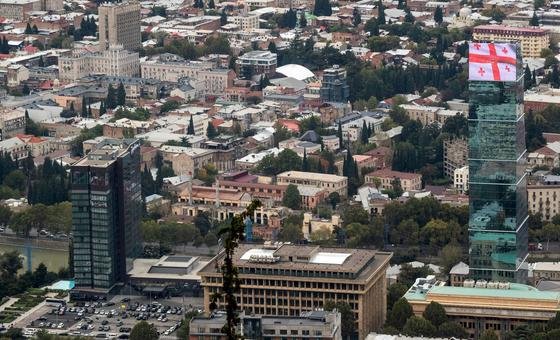Following this certification, Georgia now joins the list of 45 countries and one territory to achieve this achievement.
“Today we thank the people of Georgia for their decades of efforts to eliminate malaria – one of the world’s leading human killers,” Dr Tedros Adhanom Ghebreyesus congratulated the announcement on Thursday. “
WHO certification
Malaria is spread by certain types of mosquitoes and the disease is found mostly in tropical countries. This infection is caused by a parasite and is not spread from person to person.
This disease is preventable and treatable.
Malaria symptoms can be mild or severe. Mild symptoms include fever, chills, and headache, while severe symptoms include fatigue, confusion, seizures, and shortness of breath.
WHO certifies a country as malaria-free when it proves that transmission has been prevented throughout the country for at least three years.
Dr Hans Kluge, WHO regional director for Europe, said Georgia’s achievement was “a huge milestone worth celebrating” as the milestone would make Europe the world’s first malaria-free region. Being certified as such.
He said, this kind of success does not happen just like that. “This success has been possible due to continued investment, dedication of health workers and targeted efforts in malaria prevention, early detection and effective treatment.”
A long struggle
WHO states that malaria has plagued Georgia since ancient times. Before systematic control efforts began in the early 1900s, at least three malaria parasite species were wreaking havoc. In the 1920s, about 30 percent of the population suffered from malaria, caused by P. caused by the vivax species.
In the 1940s, large-scale mosquito control programs helped reduce malaria cases substantially, through better access to diagnostic and treatment facilities.
However, due to population movements and pressure on health facilities due to World War II, the incidence of malaria increased again.
Georgia began an intensive post-World War II program to eradicate malaria, using new drugs, spraying insecticides, and strengthening entomological surveillance.
That campaign successfully disrupted malaria-causing mosquito species – p. falciparum, p. Malaria and P. vivax.
The country was then malaria-free for 25 years, but by 2002 the disease had re-emerged, with 474 cases reported.
new promise
In 2005, Georgia and nine countries in the WHO European Region signed the Tashkent Declaration reaffirming their commitment to eliminate malaria.
Subsequent intensive programs led to a significant reduction in malaria in Georgia, with the last case recorded in 2009.
As of 2015, all 53 countries of the WHO European Region, including Georgia, have no cases of malaria.
The original signatories of the Tashkent Declaration issued the Ashgabat Statement in 2017 to prevent the re-introduction of malaria in the region, pledging to make every effort to remain malaria-free.
Türkiye is the only country in the WHO European Region to be certified malaria-free.

